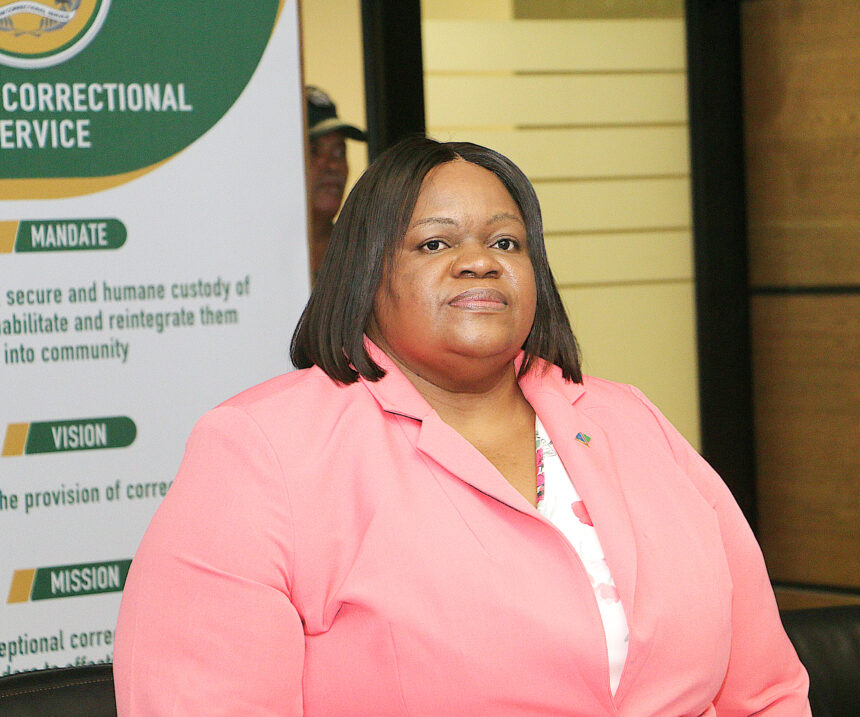Lahja Nashuuta
Through a nationwide mass registration campaign conducted between February and July 2024, the immigration ministry successfully issued 110 620 national documents and identified 14 976 undocumented or stateless persons.
This information was revealed by Home Affairs, Immigration, Safety and Security (MHAISS) minister Lucia Iipumbu while motivating the ministry’s N$7.9 billion budget for the 2025/26 financial year, of which N$435 million was earmarked for development programmes.
The budget breakdown allocated N$6.2 billion for personnel, N$1.1 billion for goods and services, and N$151.86 million for capital assets. In her presentation, Iipumbu highlighted several key achievements during the previous financial year.
“The passing of the Marriage Act of 2024, the Civil Registration and Identification Act and the Regularisation of Status Act marked a milestone in enhancing national identity management,” she added.
Border and immigration management also saw notable strides being taken.
“In total, 3.5 million travellers were processed, including 1.46 million arrivals and 2.03 million departures,” said Iipumbu.
Meanwhile, the ministry generated N$109 million from issuing passports, visas, permits and citizenship documents, with an additional N$15.03 million coming from issuing duplicate national documents.
On the issue of crime and safety, she reported a series of significant security operations. “In the past year, 14 national police operations were carried out, contributing to enhanced security during major events, and a 45% reduction in wildlife crimes,” she said.
These operations led to 1 756 arrests, the seizure of illicit drugs with a street value of more than N$58 million, and the identification of seven human trafficking cases involving 18 victims. Additionally, 239 wildlife cases had resulted in 505 arrests. Despite these successes, road accidents recorded a 4% increase.
“To address this, we rolled out mobile speed detection units and awareness campaigns to enhance road safety,” said Iipumbu.
She pointed out that for the current financial year, the ministry’s infrastructure upgrades included renovations to the Karasburg sub-regional office and the completion of new border facilities at Machenje, as well as staff accommodation facilities at Impalila Island and Kasika. Iipumbu also said the ministry had upgraded its Identity Personalisation System, aimed at improving service delivery.
In the area of correctional services reform, Iipumbu pointed out that 2 159 inmates participated in educational, vocational and psychosocial rehabilitation programmes.
“The Windhoek Correctional Facility was accredited as a vocational training provider, with new staff including four teachers and one quality assurance officer appointed to strengthen training delivery,” she noted.
Reintegration services were also expanded; with the community service programme now implemented in 58 out of the targeted 71 magistrate’s courts nationwide.
Plans
Iipumbu pledged to use the 2025/26 budget to “ensure safer communities and efficient services”.
New ID service centres will open in Omungwelume and Karasburg and, in partnership with the Ministry of Gender Equality and Child Welfare, they will focus on registering historically-marginalised communities.
Following a successful pilot in Khomas, the Biometric Fingerprint System will be rolled out nationwide to enhance identity verification. Border security will be further strengthened with a new post at Mushangara in the Zambezi region, while the Hosea Kutako International Airport will soon accept national ID cards as travel documents.
Digital transformation is a key focus: “Citizens will soon be able to apply online for long-term employment and student permits,” said Iipumbu.
To combat rising crime, the ministry aims to boost its case success rate from 50% to 80% by 2031, and raise the criminal case clearance rate from 35% to 42% by equipping detectives, strengthening police-prosecutor collaboration, and integrating critical data systems.
Challenges
The minister acknowledged a backlog of 8 498 forensic cases, including 1 000 new ones in 2024 alone. “Funding will be prioritised to address this, and support forensic divisions such as the Crime Scene Unit and Forensic Pathology,” she said.
Surveillance cameras will soon be installed in Windhoek and Swakopmund, with plans to expand to other towns, depending on available resources. She said new irrigation systems will be installed at Correctional Services’ farms to enhance food self-sufficiency. Specialised officers will be trained to expand rehabilitation programmes. “These initiatives will give inmates a second chance at life,” Iipumbu stressed.
The ministry plans to procure new vehicles, and construct regional offices in Nkurenkuru and Katima Mulilo. Feasibility studies for additional offices in Ohangwena, Oshikoto, Otjozondjupa, Omusati and Erongo are already underway.
-Inashuuta@gmail.com
Photo: Heather Erdmann



